Dogs are no different from humans. When hiking in the backcountry, they can encounter hazards on the trails and have a cut, torn paw pads, broken bones, an allergic reaction to poison oak or ivy, insect bites, snake bites, heat exhaustion, sunburn, and the list goes on.
So, if you are an avid hiker who always brings your four-legged friend along with you on your backcountry hiking adventure, you surely will need a dog hiking first aid kit. That way, you will be able to treat your pooch on the spot to keep minor mishaps from turning into a problem.
Below, we’ve put together a list of medical supplies and things you should add to your doggy first aid kit before heading into the woods!
1. Saline Eyewash

Always make sure you have a sterile saline solution on hand to keep any foreign objects from lodging in your fido’s wounds and eyes, ultimately preventing infection. And pack along a small squirt bottle so that you can easily flush out an affected area.
2. Antiseptic Wipes or Solution
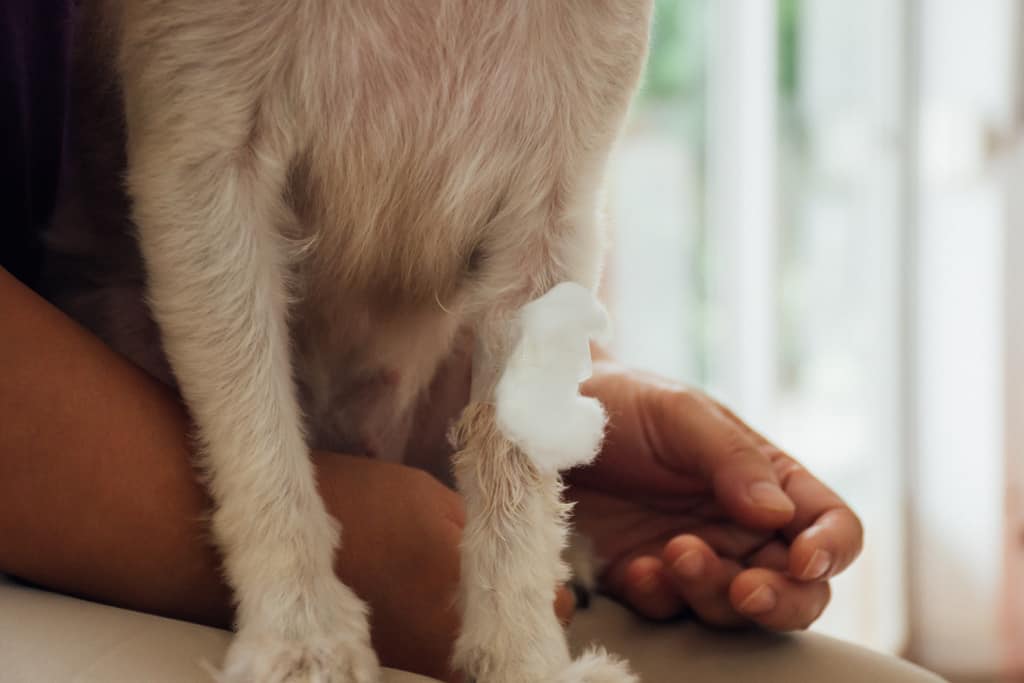
You would also want to have a few antiseptic wipes with you, at least four to five in the kit. That way, you can sanitize a wound before bandaging. If you have a concentrated Betadine solution, dilute it with water to a light ice tea color, then use a cotton swab or ball to apply the disinfectant liquid to the infected skin areas.
3. Styptic Pencil or Powder
Styptic, usually found in pencil or powder form, is a rapid-acting coagulant agent that can help stop a dog’s broken nails, minor nicks, cuts, and scratches from bleeding. Dab it onto areas where there’s a cut can help seal the skin and speed up healing.
4. Surgical Skin Stapler
While styptic pencil or powder is undoubtedly useful, they won’t be enough for treating and sealing larger and complex wounds. Meaning you would also want to have a medical skin stapler in your dog’s first aid kit. With that, you can clip and close the wound very quickly and neatly with minimal damage.
5. Bandages

Another medical device you need to have is an extra-stretchy bandage or a self-adherent cohesive bandage, which is also known as Vetrap. One thing, though, make sure the vet wrap bandage tape is not too tight when wrapping open cuts or wounds to prevent it from cutting off circulation, especially if it will take you and your hiking dog hours to hike back down.
6. Disposable Gloves
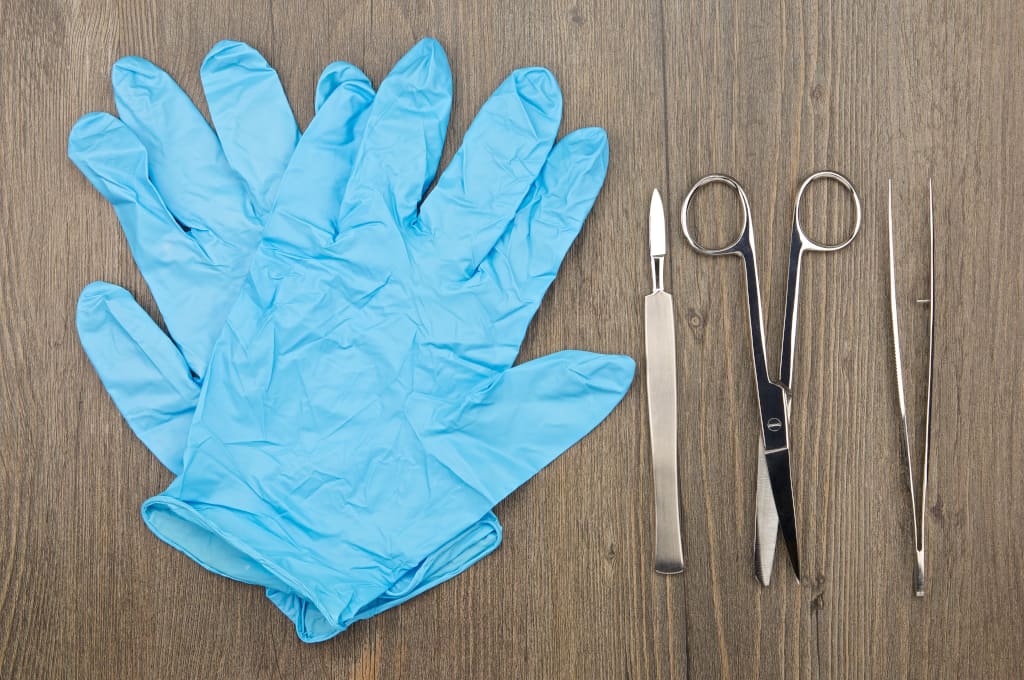
You would, of course, need a pair of disposable gloves as well when it comes to handling bleeding wounds. That is to help keep germs and bacteria from transmitting between you and your pup, although the risk is low.
7. Benadryl (Antihistamines Diphenhydramine)
Benadryl (antihistamines diphenhydramine) is a common medication to bring for hiking with dogs. This drug is for treating pain, itching, and allergic reactions caused by insect bites, stings, minor cuts, poison oak, poison ivy, and burns, but can, however, cause drowsiness. Ensure to prepare the correct dosage amount for your canine before hitting the trail, which the standard dosage is 1 mg per pound of body weight.
8. Anti-inflammatory Medicine
While over-the-counter anti-inflammatory drugs (NSAIDs) for humans like Advil (Ibuprofen), Aleve (Naproxen), and baby aspirin can reduce pain and are often used for the treatment of sprains/ strains, over administering these medications to your dog can be devastating. It can cause intestinal ulcers, stomach perforations, kidney failure, liver failure, or even death. So, make sure to consult with your veterinarian to get a prescribed canine-specific painkiller instead.
9. Muzzle
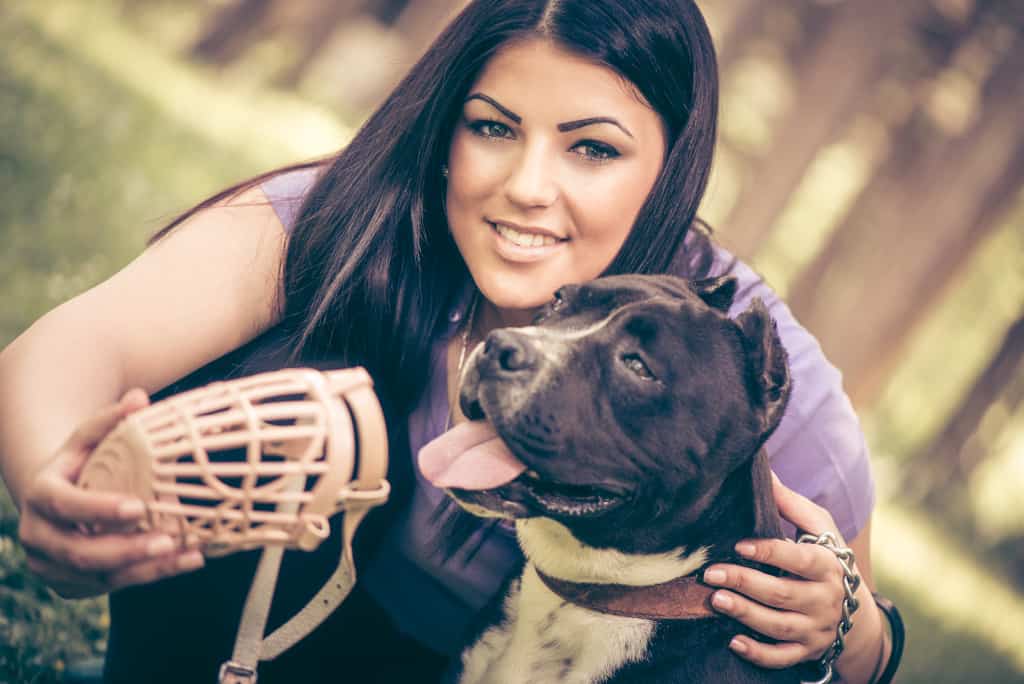
A mask-like device placed over the snout of a dog may seem unnecessary at first, but it can come in handy when your pooch is injured. The reason is that a dog’s behavior can become unpredictable, and will try to bite when in shock and pain, even at their owners. So, it’s a good idea to bring a well-fitting muzzle and put it on your furry hiking partner when they are injured to prevent them from lashing out at you or cause further harm to themselves.
10. Emergency Blanket
An emergency blanket, also known as a space blanket or Mylar blanket, is another crucial tool you need to have in your doggy’s first aid kit. It is a compact and especially low-weight, low-bulk sheet made of heat reflective material, which can retain up to 90% of the emitted body heat, capable of helping your pup stay warm in an emergency survival situation.
11. Multitool or Tweezers
Your canine may also get themselves into trouble when romping through the wilderness, for instance, chasing after a porcupine and returning with a full body of quills. Not only that, but there are also things like cactus thorns, wood splinters, and stingers that can become lodged in your dog’s skin. All that is hard and tricky to remove with fingers. So, you would want to make sure you have multi-tool pliers or at least tweezers in your pack.
12. Tick Nipper
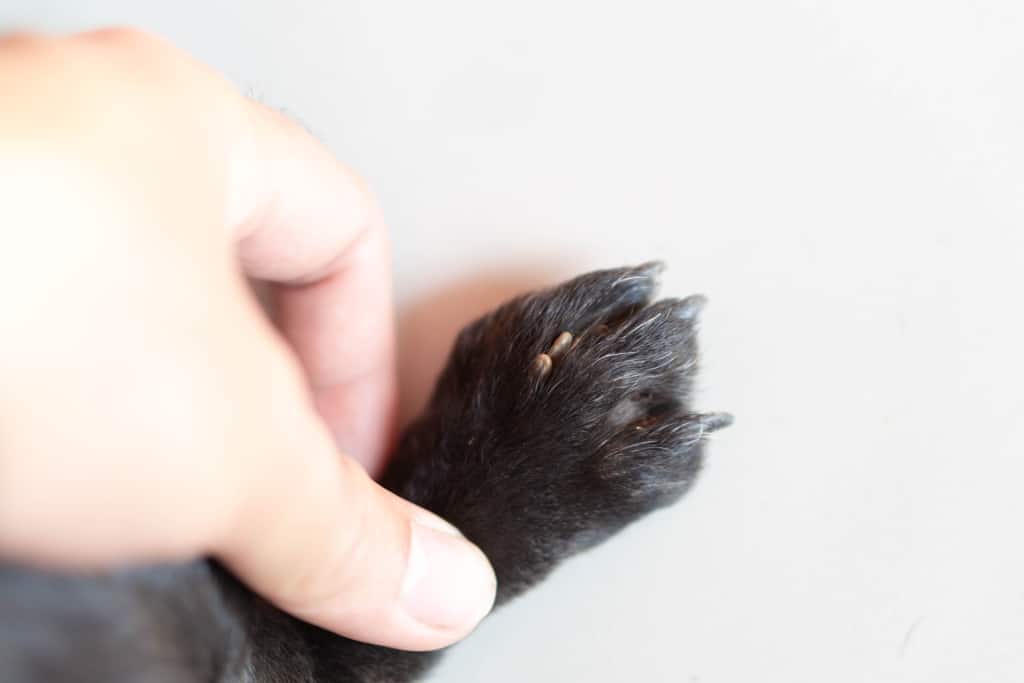
Ticks are perhaps the worst as they may carry diseases like Lyme disease that can be transferred to your dog. Do keep in mind, though, extracting an embedded tick with tweezers can potentially pull it apart and leave the head in, meaning there’s still a risk of infections. The best way you can prevent that is to use a tick preventative before heading out on the trail, and as soon as you see a tick feeding on your dog’s blood, remove it with a tick nipper.
13. Dog Hiking Boots or Paw Wax
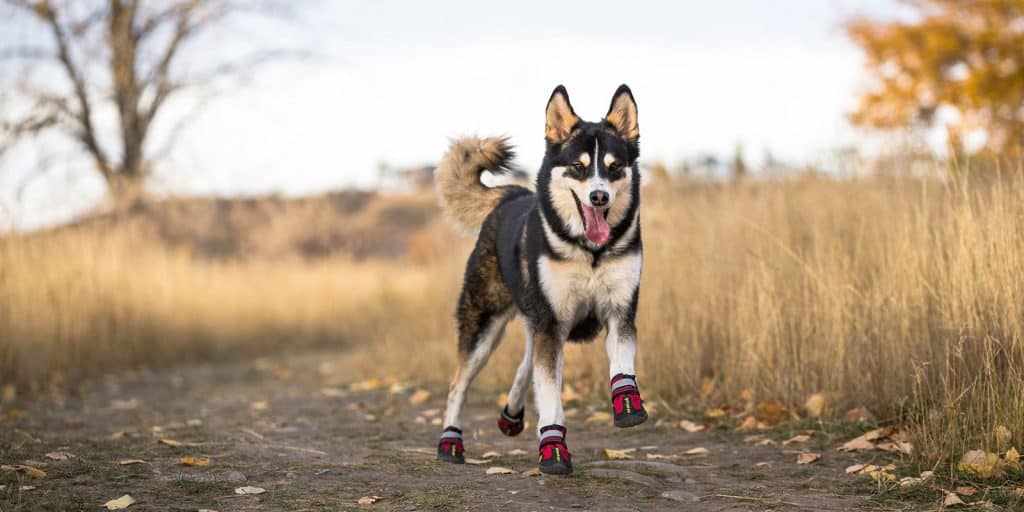
While a dog’s paw pads are tough and very resistant to injury, a rough trail with lots of sharp rocks and sticks can still tear and damage their feet. Not to mention, if hiking in the snow, ice can build up between their pads and make it uncomfortable for them to walk. Using doggie hiking boots can prevent that. Alternatively, you can apply paw wax, a protective barrier made of a blend of oils and wax to keep their feet safe.
14. Foldable Bowl
You will surely need to bring along your dog’s bowl as well so that you can feed them food when they are hungry. Most bowls these days are incredibly lightweight, can collapse on themselves or fold to a fraction of their size to make them easy to carry.
15. Portable Water Bottle
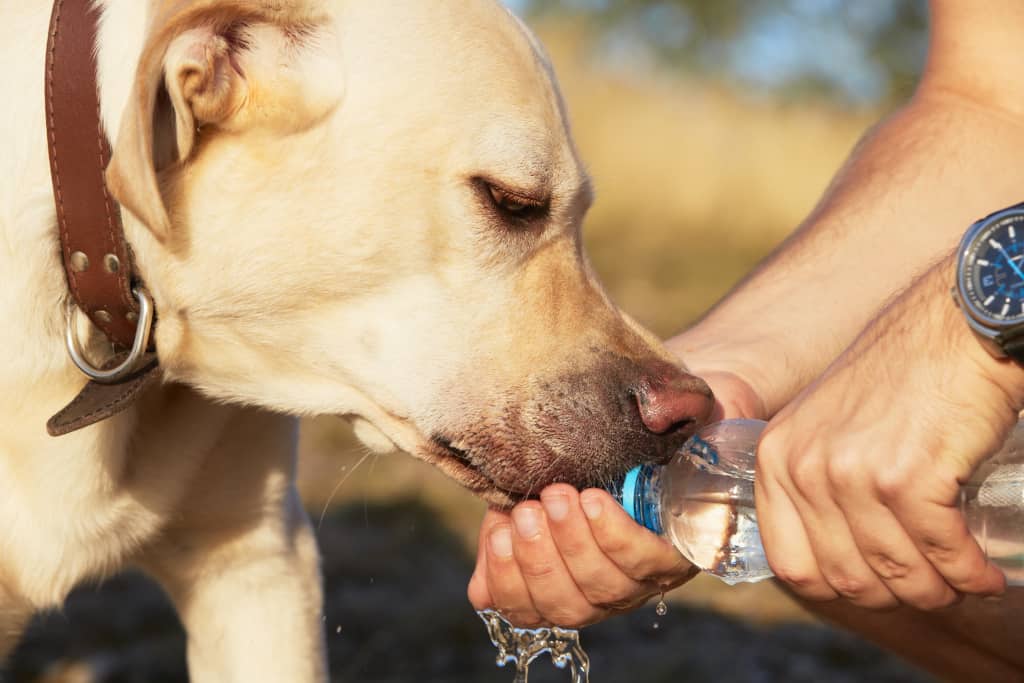
A dog’s portable water bottle is another thing you need to have in your pack. With that, you can feed your four-legged hiking buddy with fresh drinking water. Yes, there’s no doubt that your canine can drink out of a lake, river, or stream, but the problem with that is that, although the water may look clean, it may be contaminated and contain bacteria, viruses, and parasites.
16. Electrolyte Tablets
Keeping your fido’s electrolyte levels balanced is crucial as these minerals are responsible for many vital functions in a dog’s body, such as regulating nerve and muscle function and balancing blood acidity. While it is true that drinking water can contribute to electrolyte balance, dogs sometimes do need the help of electrolyte tablets for the fastest recovery, especially during times of vigorous physical activity.
17. GPS Trackers, Whistles, Bells, and Lights
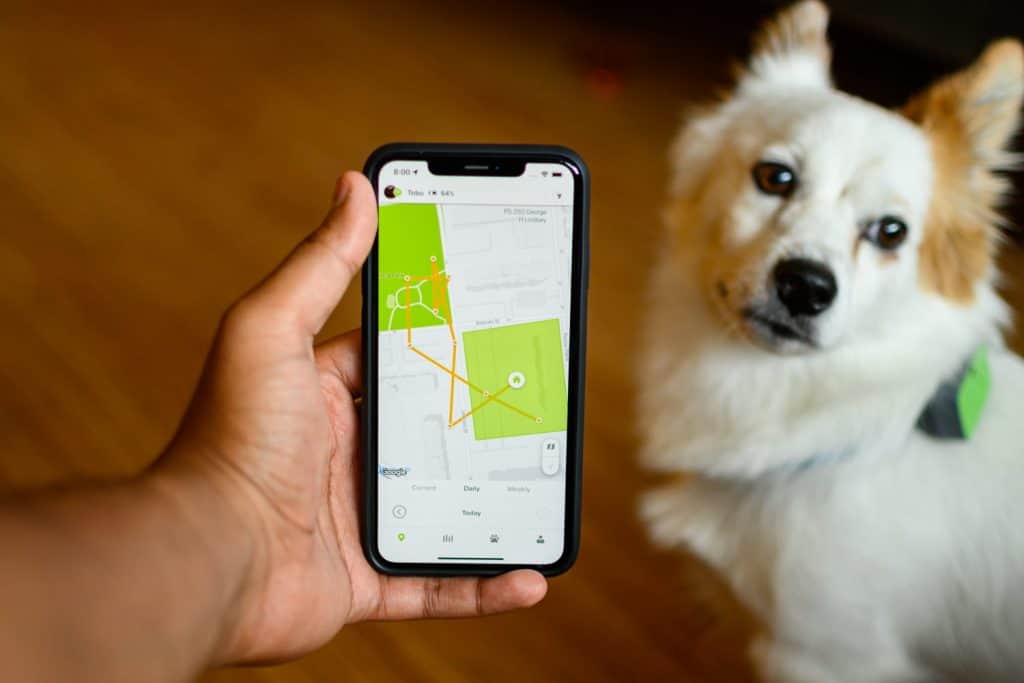
Lastly, you would want to make sure you have tools or devices like whistles, bells, and lights that can help track and determine your pup’s location during darker hours or if, for some reason that your dog becomes lost. Want the best and most reliable way to keep tabs on your furry best friend? Use a pet GPS collar tracking device instead!
Final Thoughts
Yes. There’s a lot of things you need to put in your dog’s hiking first aid kit. And although you don’t necessarily need to use most of these items whatsoever, bringing them along can help you handle medical emergencies as quickly as possible, which can save your dog’s life. Can’t fit everything in your backpack? Get your canine to carry their own first aid with a doggie hiking pack!

